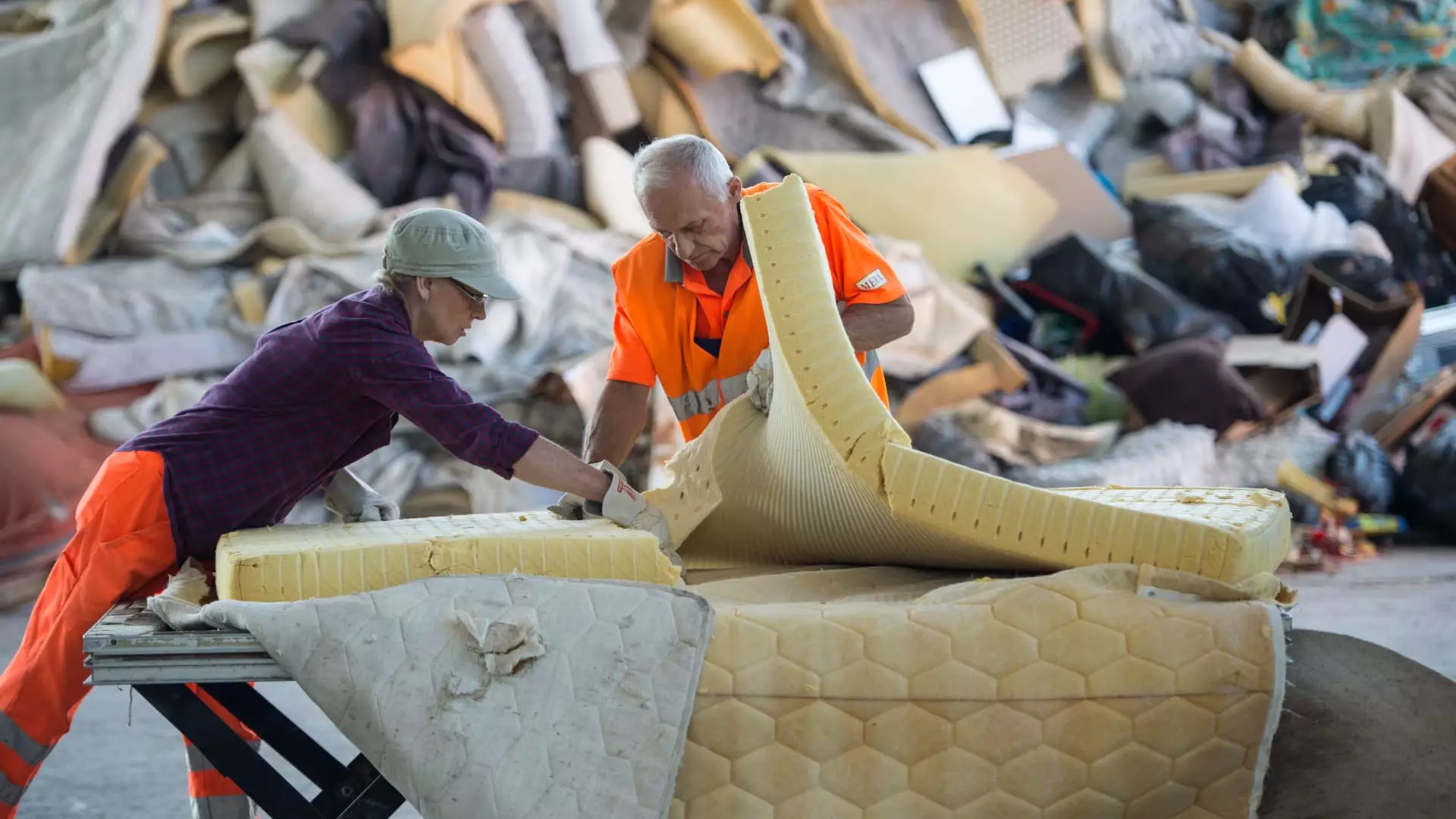In recent years, the push for eco-friendly consumer practices has reached an important sector: the mattress industry. A movement is afoot in a few states where consumers are agreeing to pay a modest fee in order to support recycling initiatives aimed at reducing landfill waste from mattresses. This trend, which has taken root in states like California, Connecticut, Oregon, and Rhode Island, illuminates a broader policy effort geared towards promoting a circular economy, where waste is minimized and materials are kept in use for as long as possible. As some states adopt these fees, it raises questions about the potential for wider implementation across the United States.
Currently, four states have introduced a flat recycling fee applicable to any mattress or box spring purchase, both online and in physical stores. These fees typically hover between $16 and $23 and are utilized to fund state recycling programs that aim to divert used mattresses from being carelessly discarded in landfills. According to the Mattress Recycling Council (MRC), a non-profit organization established by the bedding sector, some 15 to 20 million mattresses are tossed out by Americans each year, equating to roughly 50,000 mattresses a day. Notably, the MRC asserts that over 75% of a mattress is recyclable, highlighting the vast potential for resource recovery through organized recycling.
Oregon is one of the most proactive states, having introduced a “stewardship assessment” of $22.50 per unit for mattresses and box springs beginning this year. In other states such as California and Connecticut, fees have recently been adjusted to reflect an increase, indicating an ongoing commitment to expanding recycling capabilities. Rhode Island also raised its fee, showing a willingness to invest in infrastructure designed for environmental management.
The challenge of recycling mattresses has been significant, compounded by the fact that only a limited number of companies across the nation engage in this practice. Reports indicate a mere 58 businesses are exclusively designated for mattress recycling—a stark reminder of the industry’s ecological footprint. In states that have yet to adopt recycling regulations, options for mattress disposal remain scarce, often coming at a significant cost to consumers. This lack of accessibility poses a barrier to responsible disposal and reinforces the need for systemic change.
Oregon has initiated a program that is not only intended to facilitate consumer recycling but also aims to combat illegal dumping. Their approach is commendable, as it establishes new drop-off centers across counties and opens up job opportunities within the recycling sector. These efforts are examples of extended producer responsibility (EPR) laws, a concept gaining momentum across various industries in the U.S. Reid Lifset, an expert in industrial ecology, emphasizes that EPR holds manufacturers accountable for managing products at the end of their lives.
The importance of these initiatives cannot be underestimated. EPR schemes provide essential funding that can help establish more efficient recycling systems, making it economically viable for states to care for discarded products. By allowing retailers to pass on consumer fees to organizations like the Mattress Recycling Council, these programs become sustainable sources of funding. For instance, in Oregon, in 2025, approximately $12 out of each $22.50 fee will cover operational costs, ensuring the program remains effective and robust.
Additionally, there are currently over 300 mattress collection sites in states with established recycling programs, where discarded mattresses can be deposited at no cost. This accessibility is crucial in motivating consumers to participate in recycling efforts. The collaborative nature of these initiatives reflects an evolving understanding of collective responsibility, where consumers, manufacturers, and state agencies work together toward a sustainable and less wasteful future.
As the eco-conscious movement gains traction in the marketplace, the mattress industry serves as a prime example of how environmental policies can pivot an entire sector towards sustainability. While only a handful of states have instituted recycling fees thus far, the momentum suggests that broader changes may be on the horizon. Consumers are becoming increasingly aware of their own roles in environmental stewardship, and as more states adopt similar regulations, the recycling of mattresses could contribute to a significant reduction in waste and an overall healthier planet. Action is needed not just in these states but across the country to foster a culture of recycling and responsible consumption.

